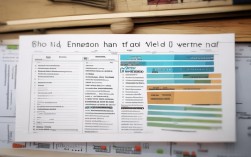在英语学习中,since 是一个常见且多功能的词汇,既可以表示时间,也能表达因果关系,许多英语学习者在写作或口语中希望找到类似的词汇,以增强表达的多样性,本文将详细介绍与 since 用法相似的单词,帮助读者更灵活地运用这些词汇。

As
As 在表示时间或原因时,与 since 的用法高度相似。
-
表示时间(强调同时性):
- As I walked into the room, everyone turned to look at me.
- As the sun rose, the fog gradually disappeared.
-
表示原因(较正式,常见于书面语):
- As it was raining heavily, we decided to stay indoors.
- As the deadline is approaching, we must work faster.
区别:as 在表示原因时,语气比 since 更正式,且更强调同时发生的逻辑关系。
Because
Because 主要用于解释原因,与 since 在因果用法上相近,但 because 更直接,语气更强。
- We canceled the trip because the weather was terrible.
- She couldn’t attend the meeting because she was sick.
区别:
- Because 通常用于回答“why”的问题,强调直接原因。
- Since 在表示原因时,语气稍弱,更偏向于已知事实的陈述。
For
For 在正式书面语中可以表示原因,但现代英语中较少见,多用于文学或正式文体。
- He was praised for his outstanding performance.
- She couldn’t sleep, for her mind was full of worries.
区别:

- For 表示原因时,通常放在主句之后,且较为正式,口语中较少使用。
- Since 更常见于日常表达。
Now that
Now that 表示“既然”,强调当前的情况导致的结果,与 since 的因果用法相似。
- Now that you’ve finished your work, you can relax.
- Now that the exams are over, we can plan a trip.
区别:
- Now that 强调“现在的情况”,而 since 可以用于过去或现在。
Given that
Given that 表示“考虑到”,与 since 的因果用法类似,但更正式,多用于书面语或学术写作。
- Given that the data supports our hypothesis, we can proceed with the experiment.
- Given that he has no experience, the task might be challenging.
区别:
- Given that 更强调前提条件,而 since 更通用。
Seeing that
Seeing that 表示“鉴于”,与 since 在因果用法上相近,但更口语化。
- Seeing that you’re tired, we should take a break.
- Seeing that the store is closed, we’ll come back tomorrow.
区别:
- Seeing that 更强调观察到的实际情况,而 since 适用范围更广。
Inasmuch as
Inasmuch as 是一个正式的表达,表示“由于”,与 since 的因果用法相似,但较为罕见,多用于法律或正式文件。
- Inasmuch as the contract has been signed, we must fulfill our obligations.
- Inasmuch as the evidence is insufficient, the case was dismissed.
区别:

- Inasmuch as 非常正式,日常交流中几乎不会使用。
Considering (that)
Considering (that) 表示“考虑到”,与 since 的因果用法类似,但更强调对现有因素的评估。
- Considering that he’s new to the job, his performance is impressive.
- Considering the traffic, we should leave early.
区别:
- Considering 更强调对情况的权衡,而 since 更直接。
Due to the fact that
Due to the fact that 是一个较长的表达,等同于 because 或 since,但更正式,适用于书面语。
- The event was postponed due to the fact that many guests couldn’t attend.
- He succeeded due to the fact that he worked hard.
区别:
- 这个表达较为冗长,口语中建议用 since 或 because 替代。
Owing to the fact that
与 due to the fact that 类似,owing to the fact that 也表示“由于”,但更正式。
- Owing to the fact that the weather was bad, the match was canceled.
- Owing to the fact that the budget was limited, we had to cut costs.
区别:
- 这个表达同样冗长,适合正式写作,日常交流中可简化。
如何选择合适的词汇?
-
口语 vs. 书面语
- 口语中多用 since, because, now that。
- 正式写作可用 given that, inasmuch as, owing to the fact that。
-
语气强弱

- 强调直接原因用 because。
- 陈述已知事实用 since。
- 强调当前情况用 now that。
-
句子位置
- Because 通常放在主句之后(除非强调原因)。
- Since, as, now that 可放在句首或句中。
常见错误
-
混淆 since 和 for
- Since + 时间点(since 2020)。
- For + 时间段(for three years)。
-
过度使用正式表达
- 在非正式场合使用 inasmuch as 或 owing to the fact that 会显得不自然。
-
忽略语境
- As 可以表示时间或原因,需根据上下文判断。
掌握这些与 since 用法相似的词汇,能让英语表达更加丰富和准确,在写作或口语中,根据语境选择合适的词汇,可以提升语言的自然度和流畅性。





